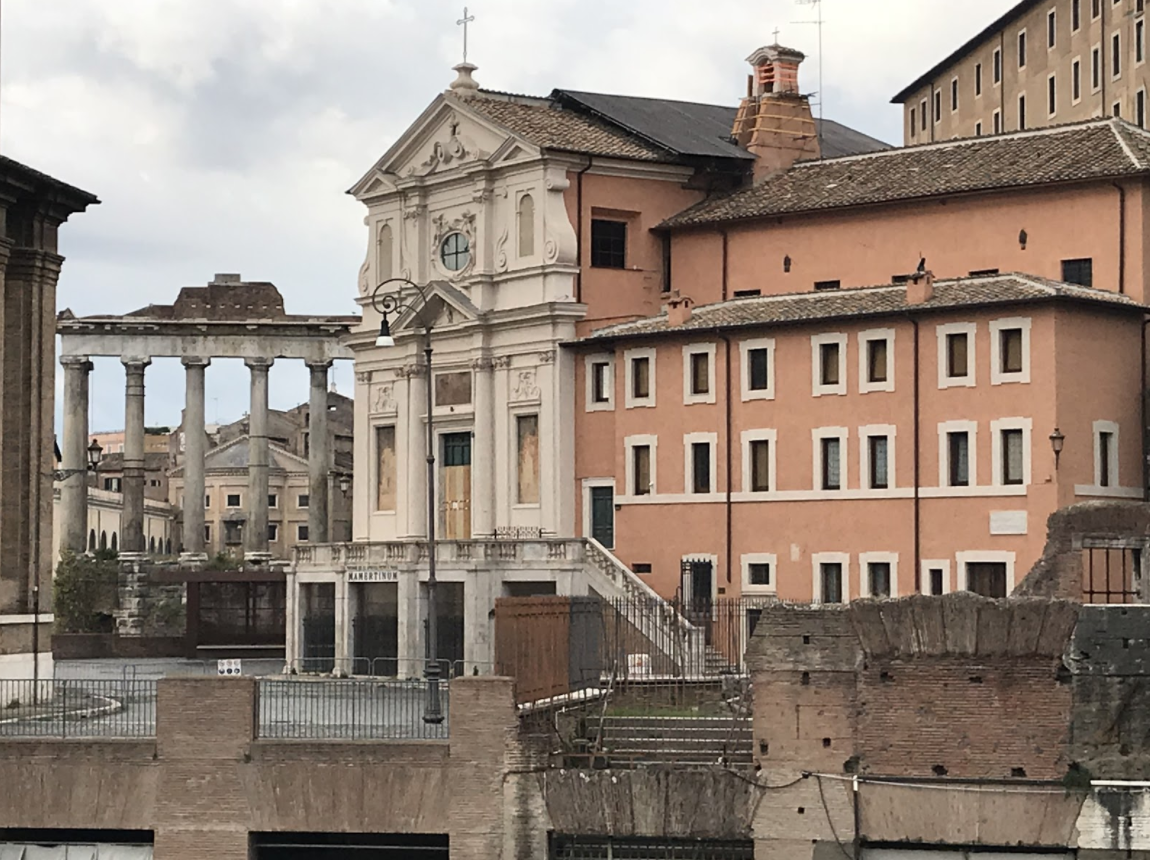It’s day TWO in 30 Days Through Philippians.
I’m particularly excited to show you my coffee mug today.

This is a beautifully crafted mug I purchased at the Abbey of Gethsemani. The Abbey is located just outside of Bardstown, Kentucky. There are few places I would more highly recommend going for a retreat day. It was the home of writer and monk Thomas Merton. Merton wrote one of my favorite prayers, which includes the line: “I believe the desire to please you does in fact please you, and I hope I have that desire in all that I am doing.”
To start our journey through Philippians, try to still your soul and silence your thoughts. Pray this prayer slowly five or six times.
O God, grant that we may desire you, and desiring you seek you, and seeking you find you, and finding you be satisfied in you forever. Amen. (A Prayer for Desiring God in BCP 2019)
Motivated by this prayer, let’s read some Philippians.
In day one, we learn that Paul’s mission was to the Gentiles. As that map showed us, he traveled all over the place. Yet, as we see in this letter, his connection to these churches are remarkably personal.
He writes to the Philippians,
“I thank my God every time I remember you, 4 constantly praying with joy in every one of my prayers for all of you, 5 because of your sharing in the gospel from the first day until now. 6 I am confident of this, that the one who began a good work among you will bring it to completion by the day of Jesus Christ. 7 It is right for me to think this way about all of you, because you hold me in your heart, for all of you share in God’s grace with me, both in my imprisonment and in the defense and confirmation of the gospel. 8 For God is my witness, how I long for all of you with the compassion of Christ Jesus.” (Philippians 1:3-8; NRSV)
Paul tips us off to his situation at the time of writing: he is in jail…again! This is not the same imprisonment we read about in Acts 16. He gets thrown in jail a few times in his life. This time, he’s imprisoned elsewhere (possibly in Rome) sometime after the imprisonment of Acts 16.
Here’s a picture I took of the jail Peter and Paul were held at in Rome, possibly where he wrote Philippians! Sadly, it was closed off to visitors for structural reasons (it is 2,000 years old, after all).

While in jail ( and possibly this one), Paul says he is “praying constantly with joy.” When you’re in jail, I guess it’s easier to “pray constantly,” but I’m currently quarantined because of a global pandemic and I don’t find this super easy. What does it mean?
Paul, even in prison, likely had his mind on some other things than the church at Philippi. From this, we shouldn’t conclude that Paul is literally constantly (some translations say “always”) praying for this church. Instead, it likely means consistently or with repetition. This shows us that Paul really cared.
How many times have we told someone “I’ll be praying for you” or wrote “thoughts and prayers” on a post? How many times do we actually do it? Sometimes once or twice…sometimes none at all.
When he was on his missionary journey, I think Paul told churches “I’ll be praying for you” and I think he meant it. He consistently and constantly prayed for these churches, including the church at Philippi.
We can, and should, follow Paul’s example. When we say “I’ll be praying for you,” then let’s be praying for them. Write their names down on a list if you’re forgetful. And spend time consistently praying for others.
Right now, take about two minutes and jot down some names (or communities) you want to pray for.
—
In the beginning verses of Philippians, Paul lays it on thick. He calls them saints—the holy ones—and tells them he prays for them with joy. He says he’s thankful, especially, for their partnership in the gospel (v. 5) from the beginning. Paul is not shy in complimenting the Philippians and letting them know how highly he thinks about their ministry.
And yet he reminds them that the work is not their own. He says, “I am confident of this, that the one who began a good work among you will bring it to completion by the day of Jesus Christ” (v. 6).
A 4th century preacher, John Chrysostom—this second name literally means “golden-mouthed,” that’s how good he was at preaching—says in a sermon on this passage,
“See how he teaches them to be modest. Having just given them a superb testimonial, in order that they should not feel down and out as human beings are so apt to feel, he immediately teaches them to refer to both the past and the future—everything—to Christ, who will bring to completion what he has begun in them. He does not take away anything from their achievement, for he has said, ‘I rejoice because of your fellowship,’ obviously pointing to their own very high level of accountability. But he does not imply that the achievement was theirs alone. Rather it was primarily God’s work in them.”
This is a reminder to us as well. Our ministries, our work, our lives are indeed important. If Paul were alive today, praying for your church, he would surely be thankful for your partnership in the gospel. Yet he would always remind us that it is God who works in us.
In the rest of Philippians, Paul will continue to clarify and expound on this. God expects, and Paul continually reminds us, our work in the gospel really matters. But at the same time, it is God who works through us.
—
There is an ancient practice of the church called Lectio Divina (Latin for “divine reading”). It goes back to Benedict, a leader in the monastic movement, in the 6th century. In short, it is a contemplative way of reading the Bible.
This is a practice I will return to throughout 30 Days Through Philippians. It’s a great way to read and meditate on Scripture and to help make sure that reading Scripture never becomes a purely intellectual exercise. It involves reading the passage and praying through it.
For today, let’s read just Philippians 1:6 in this way.
First reading of the passage: Listen
As you read the passage listen for a word or phrase that attracts you. Allow it to arise from the passage as if it is God’s word for you today. Sit in silence repeating the word or phrase in your head. Then say the word or phrase aloud.
Second reading of the passage: Ponder
As you read the passage again ask how this word or phrase speaks to your life and why it has connected with you. Ponder it carefully. Don’t worry if you get distracted – it may be part of your response to offer it to God. Sit in silence and then frame a single sentence that begins to say aloud what this word or phrase says to you.
Third reading of the passage: Pray
As you read the passage for the last time ask what Christ is calling from you. What is it that you need to do or consider or relinquish or take on as a result of what God is saying to you in this word or phrase? In the silence that follows the reading pray for the grace of the Spirit to plant this word in your heart.
Grace and peace, see you tomorrow!



